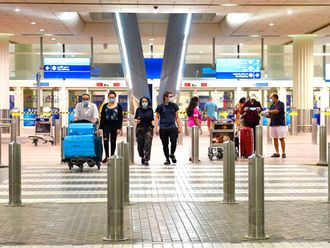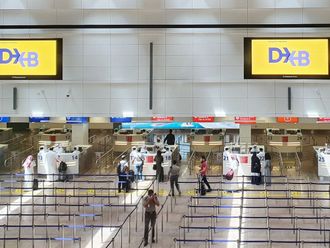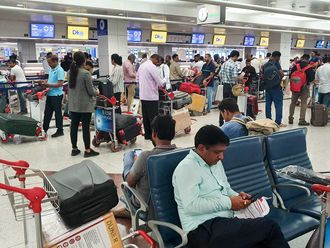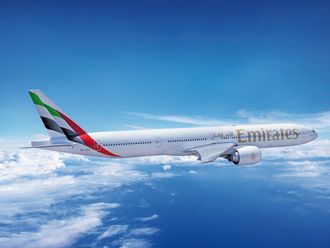LONDON
easyJet’s annual net profit slumped by almost one third on strong competition and a Brexit-fuelled slump in the pound, the British no-frills airline revealed on Tuesday.
Profit after tax slumped 30 per cent to £305 million ($404 million, 344 million euros) in the 12 months to September 30 compared with a year earlier, easyJet said in an earnings statement.
Heavy falls in the value of the pound made dollar-priced jet fuel more expensive. At the same time however, a relatively low oil-price environment resulted in airlines cutting ticket prices, ramping up competition across the industry.
easyJet pointed to “an aggressive pricing environment which saw (its) net ticket revenue per seat fall by 7.8 per cent at constant currency”.
easyJet added that total revenue grew eight per cent to £5.05 billion in its financial year, while pre-tax profit was down 17 per cent.
“easyJet delivered a robust performance during a difficult year for the aviation industry, flying a record 80 million passengers,” said the carrier’s outgoing chief executive Carolyn McCall, who announced her departure in July.
After seven years at the helm, McCall is to become chief executive of British television channel ITV.
Johan Lundgren, the former deputy of TUI travel group, will from December replace McCall, who has overseen a trebling of easyJet’s share price while heading the company.
One of her final tasks has been the part-purchase of bankrupt carrier Air Berlin’s operations for 40 million euros ($47 million).
Back in July meanwhile, easyJet applied for a new air operator’s certificate in Austria to continue flying across Europe regardless of the final Brexit deal between Brussels and London.
Britain’s airline industry has soared over the last two decades under the Single European Sky system, which lifted trade restrictions on EU airlines.
Unless British negotiators manage to secure preferential conditions, British airlines could lose this status once the country leaves the European Union in 2019.












